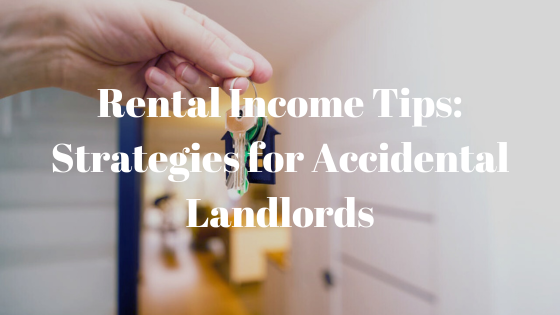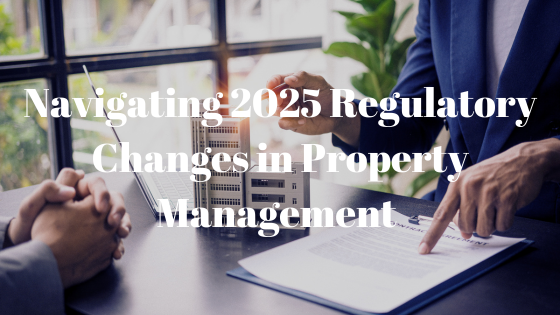How to Be a Long-Distance Landlord

You don’t have to live near your investment property in order to become a successful landlord. No matter where in the country you live, you can still collect rent and manage your rental properties without difficulty.
But being a long-distance landlord does come with a couple of challenges, especially if you’re working alone. For example, you may not be able to efficiently respond to maintenance issues or inspect your rental properties as often as you’d like.
But that isn’t to say that you can’t successfully manage your rentals while living afar. In today’s article, we at Dawson Property Management will give you 9 tips on how to become a successful long-distance landlord.
Tip #1: Connect With Local Vendors
It’s important that, even if you live in another part of the country, you network with local real estate professionals when you are investing out-of-state. It’s through these meetings where you may be able to meet local inspectors, agents, attorneys, and other professionals that may be valuable to your rental investment.
A great example of why this is important is regarding maintenance and repair. You may be able to meet a reliable contractor that can come in handy whenever necessary by networking and they can help check up on your unit, as well as respond to emergency issues.
Tip #2: Choose Your Tenants Carefully
Since you’ll be managing your rental from afar, you’ll want to rent to reliable, trustworthy tenants. So, you will need to develop a meticulous screening process to ensure you weed out potential difficult tenants.
You should ensure that all prospects complete a rental application form and, in the form, make sure to request that they provide certain crucial information. Including, pay stubs, employment contracts, bank statements, as well as W-4 tax forms ad W-2 forms.

Tip #3: Learn How the Market Works
Every market is created differently so understanding your local market can help you stay compliant and competitive. You’ll be able to keep up with the prevailing rental rates, which can enable you not only maximize your income from rental properties but also stay ahead of your competition.
In addition, keeping up with how the real estate market moves can help ensure you’re compliant with local laws.
Tip #4: Go Digital
Collecting rent payments while living in a different city can pose some challenges, especially if you’re used to collecting it in cash or in checks.
To simplify things for both you and your tenant, it’s a good idea to set up an online rent collection system. Alternatively, you could collect it either via mail, wire transfer, or post-dated checks. However, please note that collecting post-dated checks will only work for fixed-term leases.
Tip #5: Communicate With Your Tenant
Being the landlord, you have a responsibility to ensure you have open lines of communication with your tenant. Make sure that they can get in touch with you through a variety of easy means.
You may even want to provide them with additional contacts, as well. You can also ask the same of them in order to have someone to contact should the tenant be inaccessible.
Tip #4: Create a Solid Lease Agreement
Your rental or lease agreement can determine your success as a landlord. To set yourself up for success, you’ll want to have a rock-solid agreement in place. A rock-solid agreement should be able to clearly define who’s responsible for what, among other things.
This will help protect you and your investment should an issue arise somewhere down the road. If you’re just starting out and don’t know what terms to include, enlist the help of a professional. You can hire either a qualified attorney or an experienced property management company.

Tip #7: Inspect the Property Frequently
Ensuring your property is inspected frequently is critical to its success as an investment. But there are many different types of inspection you can complete on the rental.
The first type of inspection you should conduct is the move-in inspection. You should do this before the tenant moves in. The goal of this inspection is to document the property’s condition. Go through every room and document its condition. Then once you’re both through, sign and date it.
Other types of inspections you’ll want to carry out during a tenancy include the following.
- Seasonal inspections
- Drive-by inspections
- Move-out inspections
To ensure these inspections go as expected, make sure to notify your tenant well in advance. While North Carolina doesn’t have a legal provision regarding landlord’s right to entry, most landlords still provide their tenants with some notice nevertheless.

Tip #8: Insure Your Rental Property
You may also want to insure your rental property against potential loss or damage arising from certain perils. Common perils include flood, theft, lost rental income, equipment breakdowns, and hazards, such as fires or sewer backup.
Also, it may be in your tenant’s best interest to require them to have a renters insurance. This will help insure their personal belongings against unforeseen events, such as theft, fire, break-ins, or even injuries.
Tip #9: Hire a Property Manager
Managing a rental property is involving and operating one from afar can only complicate things. Luckily for you, professional property managers can help.
Hiring a full-service property management company can help handle all your property management needs. From finding a tenant, to screening rental prospects, to collecting rent, to inspecting the property, to filing tax returns.
Bottom Line
Being a long-distance landlord comes with its own unique set of challenges. You may not be able, for instance, to provide timely responses to your tenant’s needs or inspect the rental as often as you’d like.
Luckily for you, Dawson Property Management can help. Whether you’re a local or an out-of-state investor, we can help manage your property reliably and professionally. We can get you started right away!







